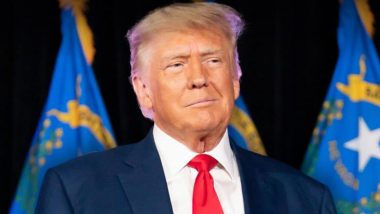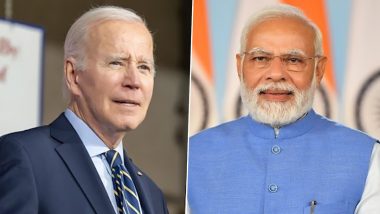Washington, DC, January 6: Donald Trump is set to return to the White House as the 47th President of the US on January 20, marking the commencement of his second term. This historic day will witness the swearing-in of Trump and the vice-president-elect as they officially assume office for the next four years. Inauguration Day holds immense significance in American democracy, symbolising the peaceful transfer of power and the beginning of a new administration. With preparations underway for this momentous occasion, many are left wondering: what exactly is Inauguration Day, and why does it always fall on January 20?
As the nation gears up for the ceremonial event, questions about the traditions and history surrounding Inauguration Day continue to pique public curiosity. From the presidential oath of office to its significance in ensuring continuity of leadership, Inauguration Day has long been a cornerstone of U.S. governance. Why was January 20 chosen as the fixed date, and what are the key elements of this day? Let’s explore the history, significance, and ceremonial aspects of Inauguration Day as America prepares to witness the next chapter in its political legacy. Donald Trump Inauguration 2025 Date, Time, Venue: When and Where US President-Elect Will Take Oath? Know All About Inauguration Day of 47th President of the United States.
What is Inauguration Day?
Why Does Inauguration Day Fall on January 20?
Inauguration Day falls on January 20 due to the 20th Amendment to the US Constitution, ratified in 1933. Before this, the presidential inauguration was held on March 4, a date chosen to allow sufficient time for election results to be counted and for the President-elect to travel to Washington, DC. However, as transportation and communication improved, the four-month delay between the election and the inauguration was seen as unnecessary and potentially problematic, especially during times of crisis or transition.
The 20th Amendment aimed to shorten this "lame-duck" period by moving the inauguration date to January 20, ensuring a quicker transfer of power. January 20 was chosen because it provided enough time for election certification and for the incoming administration to prepare for governance. The amendment states that the terms of the President and Vice President shall end at noon on January 20, marking the official start of the new administration.
If January 20 falls on a Sunday, the public inauguration ceremony is held the following day, January 21, while the swearing-in may occur privately on the 20th. This fixed date has become a cornerstone of US democracy, symbolising the orderly transfer of power every four years.
(The above story first appeared on LatestLY on Jan 06, 2025 02:24 PM IST. For more news and updates on politics, world, sports, entertainment and lifestyle, log on to our website latestly.com).













 Quickly
Quickly





















